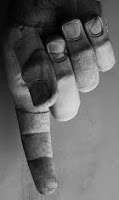Dante Street
by Isaac Babel
Isaak Bábel / La calle de Dante
The Hotel Danton, where I was staying, was rattled to its foundations by moans of love from five until seven in the evening. Experts were at work in the rooms. Having arrived in France with the conviction that its people had lost their spark, I was somewhat taken aback by their vigor. In our country, we do not bring women to such a boiling pitch. Nowhere near it.
“Mon vieux” Monsieur Bienalle, my neighbor, once told me, “in our thousand years of history we have created woman, food, and literature. No one can deny this.”
Jean Bienalle, a secondhand car dealer, did more for my knowledge of France than all the books I had read and all the French towns I had seen. The first time we met he asked me which restaurant I ate at, what cafe I went to, and which brothel I frequented. My answer appalled him:
“On va refaire votre vie”
And the changes were undertaken. We ate lunch at a tavern across the street from the Hailes aux vins, frequented by cattle dealers and wine merchants.
Germaines powerful, lithe body moved before us in the smoke and gold of the Paris evening. She laughed, throwing back her head and pressing her delicate pink fingers to her breasts. My heart glowed during these hours. There is no solitude more desperate than solitude in Paris. This town is a form of exile for all who come to it from far away, and I realized that Germaine was more important to me than she was to Bienalle. I left for Marseilles with this thought in mind.
After a month in Marseilles, I returned to Paris. I waited for Wednesday to hear Germaines voice.
Wednesday came and went, but nobody disturbed the silence of the room next door. Bienalle had changed his day. A womans voice rang out on Thursday, at five o’clock as always. Bienalle gave his visitor time to take off her hat and gloves. Germaine had not only changed her day, she had also changed her voice. It was no longer the gasping, imploring “Oh, Jean!” followed by silence, the harsh silence of another persons happiness; it had turned into a hoarse domestic clamor with guttural exclamations. The new Germaine gnashed her teeth, flung herself heavily onto the sofa, and during the interludes pontificated in her thick, dragging voice. She said nothing about Monsieur Heinrich, growled until seven o’clock, and then got ready to go. I opened the door a crack to say hello to her, but saw a mulatto woman in the corridor with a cockscomb of horselike hair and large, dangling, hoisted-up breasts. She was coming down the corridor, her feet shuffling in worn-out shoes with no heels. I knocked on Bienalle’s door. He was lolling about in bed in his shirt and washed-out socks, ashen and crumpled.
“So, mon vieu you’ve pensioned off Germaine?”
“Cette femme est follehe said with a shudder. “Mademoiselle Germaine does not care that on this earth there is winter and summer, a beginning and an end, and that after winter comes summer and then the opposite. She heaves a heavy burden on you and demands that you carry it — but where to, nobody but Mademoiselle Germaine knows!” Bienalle sat up in bed.
His trousers stretched over his thin legs. His pale scalp shimmered through his matted hair, and his triangular mustache twitched. A bottle of Macon, four francs a liter, lifted my friend’s spirits again. As we waited for our dessert, he shrugged his shoulders and said as if in answer to my thoughts, “Theres more than everlasting love in this world—there are Rumanians, promissory notes, men who go bankrupt, cars with broken chassis. Oh, fen aiplein le dos!”
“Ah, canaille!” Bienalle said after them. “Two years ago anyone could have had her for an aperitif.”
All this took place at six in the evening, the hour of love. There was a woman in every room. They hastily applied rouge and drew black lines along the edges of their lips before leaving half dressed, with stockings up to their thighs like pageboys. Doors opened and men with untied shoes lined up in the corridor. In the room of a wrinkled Italian racing cyclist a barefoot little girl was crying into the pillow. I went downstairs to tell Madame Truffaut. The girls mother sold newspapers on the Rue St. Michel. All the old women of our street, the Rue Dante, misshapen piles of goiterous meat, whiskered, wheezing, with cataracts and purple blotches, had already gathered in the little office: market women, concierges, sellers of roasted chestnuts and potatoes.
“Voila qui nestpasgai,” I said as I went in. “Quel malheur”
“C’est I’amour, monsieur. . . . Elle Taimait
Madame Truffaut’s lilac breasts tumbled in her lace blouse, her elephantine legs strode through the room, her eyes flashed.
“Uamore Signora Rocca, who ran a restaurant on Rue Dante, called out from behind her like an echo. “Dio castiga quelli” chi non conoscono Vamoref
The old women huddled together, all muttering at the same time. A variolar flame lit their cheeks, their eyes bulging out of their sockets.
“Vamour” Madame Truffaut repeated, hobbling toward me. “C’est une grosse affaire, Pamour”
A siren sounded in the street. Skillful hands dragged the murdered man downstairs and out to the ambulance. My friend Bienalle had turned into a mere number, losing his name in the rolling waves of Paris. Signora Rocca went over to the window and looked out at the corpse. She was pregnant, her belly jutting out threateningly. Silk lay on her protruding hips, and the sun washed over her yellow, puffy face and soft yellow hair.
“Dio” Signora Rocca said. “Tu non perdoni quelli, chi non amano.”
Dusk descended on the tattered net of the Latin quarter, the squat crowd scuttling into its crevices, a hot breath of garlic pouring from its yards. Darkness covered the house of Madame Truffaut, its gothic facade with its two windows, and the remnants of turrets and volutes, ivy turned to stone.
Danton had lived here a century and a half ago. From his window he had seen the Conciergerie, the bridges strewn across the Seine, and the same cluster of little blind hovels huddling by the river. The same breath had wafted up to him. Rusty beams and signs of wayside inns had creaked, rattled by the wind.
1934.




No comments:
Post a Comment